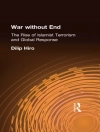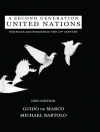Republicans who live closer to the U.S.-Mexico border are less likely to support constructing a wall than those who live farther away. After a mass shooting, gun sales and permit applications skyrocket in nearby communities. Experiencing an extreme weather event like a hurricane or flood can encourage someone to attribute climate change to human activity. Why do we react so differently to faraway events and ones that take place on our doorsteps, and what does this reveal about our political landscape?
Proximity Politics is a groundbreaking examination of the role of distance in shaping attitudes, behaviors, and understandings of the world. Analyzing geocoded survey data, Jeronimo Cortina documents the crucial ways space and place influence public opinion. He demonstrates that the closer someone is to an event, social group, or policy, the likelier they are to have first-hand, specific, grounded knowledge of the subject. Conversely, distance leads to detachment, making it more likely that decontextualized or unreliable information and individual or group biases will prevail. Considering a range of case studies, from virus outbreaks to protests, Cortina unravels how spatial, emotional, temporal, social, and cultural distances affect public opinion. Bringing together quantitative and qualitative data in an accessible style, Proximity Politics shows that even in today’s interconnected world, we are still profoundly influenced by what happens next door.
Mục lục
Acknowledgments
1. The Forest and the Trees
2. Outbreaks, Epidemics, and Pandemics: Zika, Ebola, and COVID-19
3. Bombs and Guns: Boston, Paris, and El Paso
4. Protests: #Black Lives Matter
5. One Size Does Not Fit All: Attitudes Toward Immigration
6. From a Distance: Partisanship, Public Attitudes, and Geographic Proximity Toward the U.S.-Mexico Border Wall
7. The Perfect Storm
8. The Great Drought, with Markie Mc Brayer
9. So What?
Appendix
Notes
Index
Giới thiệu về tác giả
Jeronimo Cortina is associate professor of political science and executive director of the Population Health Collaborative at the University of Houston. He is coeditor of
A Quantitative Tour of the Social Sciences (with Andrew Gelman, 2009) and
New Perspectives on International Migration and Development (Columbia, 2013).












